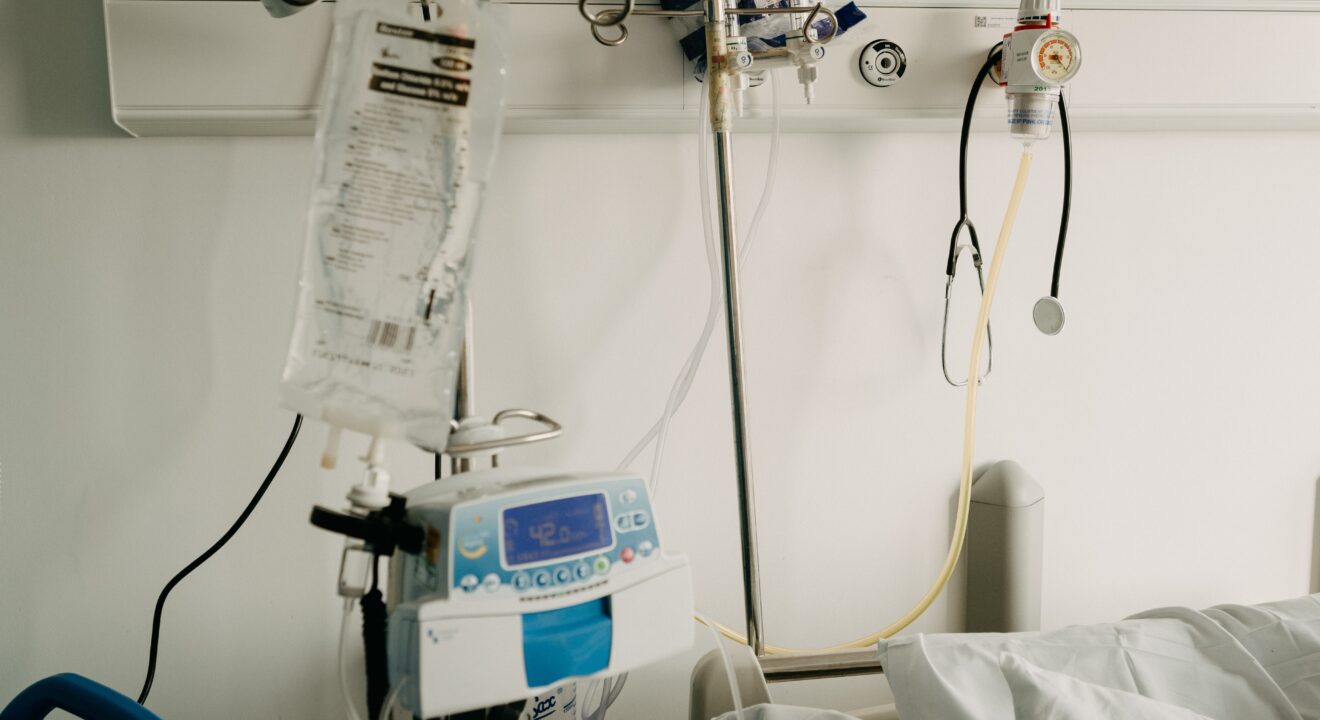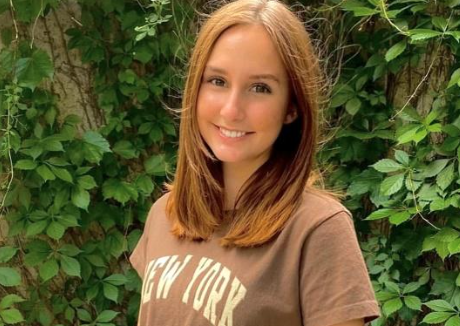Culture May 3, 2023


In her hospital bed is where she learned her story. Between the monitors, the machines, the medicines, her mother’s soft look of sympathy that illuminated the dark room. Through the window that overlooked the city she was now isolated from and scattered across the Get Well Soon cards from her sophomore year classmates, Maddie understood that rather than making memories with her friends at school, she would be learning how to live her life from a hospital bed.
Maddie Beair is a 21-year-old woman who attends the University of Nebraska-Lincoln. When she was 15, she was diagnosed with Crohn’s disease, intense inflammation in the digestive tract. The route to finding her diagnosis was difficult because of the barriers that are put in front of women that enter the hospital. For instance, when her mother, Misty Beair, was in the hospital with severe sickness, her male doctors dismissed her condition and patted her on the back to tell her that it was all in her head. She was seen as a dramatic woman who couldn’t differentiate her symptoms from her emotions. After 5 years of appointments and exploratory surgery, Misty was diagnosed with Crohn’s disease. Similarly, Maddie was told by several doctors that her symptoms were exaggerated. She looked into the eyes of her male doctor and knew that she wasn’t going to be taken seriously. Her mother had a gut feeling that Maddie also had Crohn’s disease, so she pushed for extra tests despite her doctor implying that Maddie’s symptoms were not severe. On September 20, 2017, Maddie’s doctor slunk into her room with an embarrassed look on his face. Apologetically, he said, “I am sorry for not listening to you when you asked for the extra tests. We found that you have the most severe case of Crohn’s disease that this hospital has ever seen; there is not a single part of your digestive tract that is not covered in inflammation. I have requested that you do not pay for my services, and I will be voluntarily removing myself from your case.” Maddie was relieved to finally have answers. She didn’t cry, instead, she felt happy and validated to know that she wasn’t making it all up.
I have known Maddie for my entire life. We share anything and everything at any time, but it is still difficult for me to understand her experience with this illness. She keeps the severity of it to herself because she lives inside of a “Burden Mindset.” Maddie feels as if she would let people down if she says that she is sick, like the time she pushed her limits at a school event. Fatigue was weighing her down, but rather than taking a break like she needed, she kept pushing herself until she eventually passed out.
Maddie understands that it is difficult to stand up for yourself when you live with obstacles; her illness has motivated her to be a strong advocate for those that don’t have a voice for themselves. She is outspoken and confident in the face of discrimination. Maddie explains that even though she had to fight to be heard, she knows that her experience might have looked incredibly different if she did not have her mother to advocate for her at the time, if she didn’t have insurance to cover her medical bills, and if she didn’t have white skin. She knows that aspects of her privilege have helped her, and she wants to be a voice for those that do not have access to the same kinds of privilege. Today, Maddie is employed as a relief youth specialist at an emergency shelter in Lincoln, Nebraska. I asked Maddie what she would say to women living with a chronic illness who have experienced discrimination. She states, “Realize what our society was built on and what we’ve been working on diminishing. As much as you feel silenced by those that take away your voice for the sole reason that you’re a woman, remember the generations that will come after you, and remember what you wish you had. Even the smallest step is still a step. One thing you say can change a perspective. Speak up, someone is looking for you.”
About Nikki Fertig: Nikki Fertig is a sophomore at the University of Nebraska-Lincoln majoring in Film Studies with a minor in Psychology. Nikki firmly intends on becoming a filmmaker with an emphasis on screenwriting.

About Stories Matter: A mentoring program founded by writer Leslie Zemeckis, and co-sponsored by the SBIFF and ENTITY Magazine, for young female writers, nurturing and inspiring the next generation of writers to tell their stories. A weekly intensive with published female author’s giving their time to encourage greatness and share their writing process. The theme was “A Woman You Should Know.” These stories are the best of the bunch, some remain works-in-progress, some will (hopefully) take these stories and turn them into longer pieces.